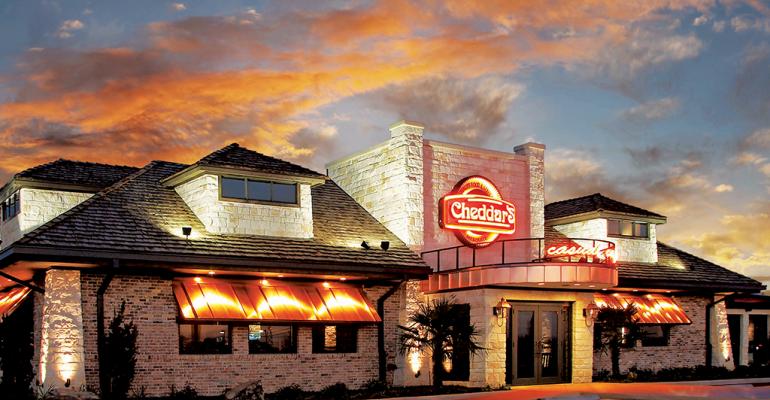 This post is part of the On the Margin blog.
This post is part of the On the Margin blog.
Strategic investors have certainly made a splash so far in 2017. Restaurant Brands International Inc. acquired Popeyes Louisiana Kitchen for an insane multiple. Darden Restaurants Inc. acquired Cheddar’s Scratch Kitchen, less than three years after it sold Red Lobster.
And JAB Holding acquired Panera Bread Co. Though JAB is technically an investment firm, it certainly operates like a strategic acquirer of restaurant chains. At the very least, it’s not a traditional private-equity firm.
In past years, restaurants had largely sold off concepts and avoided acquisitions as investors pushed a more focused business model. Activists, in particular, frequently pushed companies to sell off assets.
Yet these days, it seems, investors are more willing to accept such moves, perhaps eager to see their companies generate more revenues and earnings in a tougher market.
In 2014, investors had been pushing Darden to spin off some of its concepts to be more focused. Darden responded with the Red Lobster sale, but then investors overhauled the board. The company spun off its real estate — and returned to buying by 2017.
And the Cheddar’s deal was widely cheered among analysts and Wall Street types.
Or consider a deal that didn’t happen: Earlier this month, before JAB was revealed as the buyer of Panera, there were rumors that Starbucks Corp. was the potential buyer. Starbucks’ stock actually went up.
The prospect of aggressive acquisitions on the part of strategic buyers is good for companies in sell mode. Strategic buyers traditionally pay higher multiples than do private-equity buyers because they have longer time horizons and aren’t looking for a quick flip.
Darden is buying Cheddar’s as a long-term growth play to generate more revenues and earnings. So it is not concerned about generating a return on the price it paid in five years (Though it isn’t paying anywhere near the multiples that JAB and RBI are paying.)
Similarly, RBI can pay 21 times earnings before interest, taxes, depreciation and amortization for Popeyes because it has zero plans to sell Popeyes.
Whether such multiples are wise is another question — by paying such a high multiple, RBI is betting that it will be able to generate growth at Popeyes to warrant such a price. But it’s also a risk because it will take longer for Restaurant Brands to generate a return.
Still, the U.S. restaurant industry is saturated. It’s harder to generate domestic growth. Companies can’t grow as fast as they’d like with existing concepts, and so some are willing to pay the price to buy up other concepts.
All that said, it remains to be seen whether this year’s results are part of a broader trend or whether they are simply coincidental expansions by a trio of multi-concept owners.
Beyond these three buyers, relatively few restaurant companies appear to be in acquisition mode at the moment — content with their own growth prospects or busy developing their own concepts.
Yet, for a few months at least, the strategic buyer flexed its muscles.
Jonathan Maze, Nation’s Restaurant News senior financial editor, does not directly own stock or interest in a restaurant company.
Contact Jonathan Maze at [email protected]
Follow him on Twitter: @jonathanmaze

